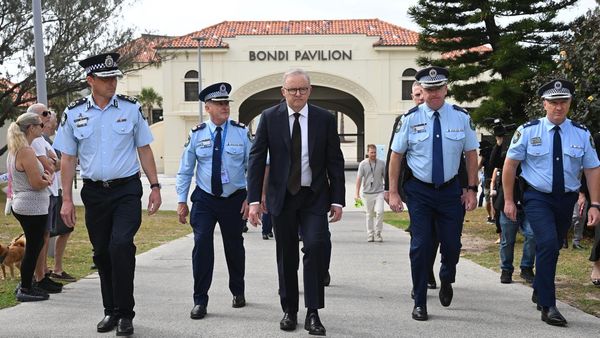High-caffeine energy drinks will be banned for under-16s in England to prevent harm to children’s health, the Government has said.
The plan will make it illegal to sell energy drinks containing more than 150mg of caffeine per litre to anyone under 16 across all retailers, including online, in shops, restaurants, cafes and vending machines.
Lower-caffeine soft drinks – such as Coca‑Cola, Coca‑Cola Zero, Diet Coke and Pepsi – are not affected, and neither are tea and coffee.
However, high-caffeine energy drinks such as Red Bull, Monster, Relentless and Prime would all breach the limit.
Major supermarkets including Tesco, Sainsbury’s, Waitrose, Morrisons and Asda have already stopped sales of the drinks to youngsters, but the Department of Health said research suggests some smaller convenience stores are still selling them to children.
According to ministers, a ban could prevent obesity in up to 40,000 children and will help prevent issues such as disrupted sleep, increased anxiety and lack of concentration, as well as poorer school results.
Around 100,000 children are thought to consume at least one high-caffeine energy drink every day.
Health Secretary Wes Streeting was asked whether the ban on high caffeine energy drinks for under-16s could see children asked to provide identification in shops.
He told Times Radio: "That's how many supermarkets who already ban the sale of these drinks already work."
He added: "Lots of young people do have some form of ID or another.
"This is exactly why, in terms of getting this right and making sure this works across all retailers, we're consulting over the next 12 weeks.
"We're asking retailers to respond to our consultation, because this Government wants to work with businesses, not just doing things to businesses.
"And in particular, we want to learn from those retailers for whom this is already working well."
A newly-launched consultation will now run for 12 weeks to gather evidence from experts in health and education as well as retailers, manufacturers, local enforcement leaders and the public.
Drinks containing more than 150mg of caffeine per litre must already carry warning labels stating they are not recommended for children.
Gavin Partington, director general of the British Soft Drinks Association, said firms do not market or promote the drinks to under-16s.
He added: “Our members have led the way in self-regulation through our long-standing energy drinks code of practice.
“Our members do not market or promote the sale of energy drinks to under-16s and label all high-caffeine beverages as ‘not recommended for children’, in line with and in the spirit of this code.
“As with all Government policy, it’s essential that any forthcoming regulation is based on a rigorous assessment of the evidence that’s available.”
According to the Department of Health, up to one in three children aged 13 to 16, and nearly a quarter of children aged 11 to 12, consume one or more high-caffeine energy drink every week.
Education Secretary Bridget Phillipson said: “This Government inherited a scourge of poor classroom behaviour that undermines the learning of too many children – partly driven by the harmful effects of caffeine-loaded drinks – and today’s announcement is another step forward in addressing that legacy.”
Professor Steve Turner, president of the Royal College of Paediatrics and Child Health, said: “Paediatricians are very clear that children or teenagers do not need energy drinks.
“Young people get their energy from sleep, a healthy balanced diet, regular exercise and meaningful connection with family and friends.
“There’s no evidence that caffeine or other stimulants in these products offer any nutritional or developmental benefit, in fact growing research points to serious risks for behaviour and mental health.
“Banning the sale of these products to under-16s is the next logical step in making the diet of our nation’s children more healthy.”
Carrera, from the youth-led group Bite Back, which campaigns for changes to the way unhealthy foods are made, marketed and sold, said: “Energy drinks have become the social currency of the playground – cheap, brightly packaged, and easier to buy than water.
“They’re aggressively marketed to us, especially online, despite serious health risks.
“We feel pressured to drink them, especially during exam season, when stress is high and healthier options are hard to find.
“This ban is a step in the right direction, but bold action on marketing and access must follow.”
Amelia Lake, professor of public health nutrition at Teesside University, said: “Our research has shown the significant mental and physical health consequences of children drinking energy drinks.
“We have reviewed evidence from around the world and have shown that these drinks have no place in the diets of children.”
Barbara Crowther, of the Children’s Food Campaign at Sustain, an alliance of food, farming and health organisations, said the drinks were “branded and marketed to appeal to young people through sports and influencers, and far too easily purchased by children in shops, cafes and vending machines”.
Professor Tracy Daszkiewicz, president of the Faculty of Public Health, said: “Mounting evidence shows us that high-caffeine energy drinks are damaging the health of children across the UK, particularly those from deprived communities who are already at higher risk of obesity and other health issues.
“We welcome this public health intervention to limit access to these drinks and help support the physical and mental wellbeing of our young people.”
James Lowman, chief executive of the Association of Convenience Stores, said: “The majority of convenience stores already have a voluntary age restriction in place on energy drinks, and will welcome the clarity of regulation on this issue.
“Our members have a long-standing track record of enforcing age restricted sales on different products, but it is essential that the Government effectively communicates the details of the ban to consumers to avoid the risk of confrontation in stores.”







